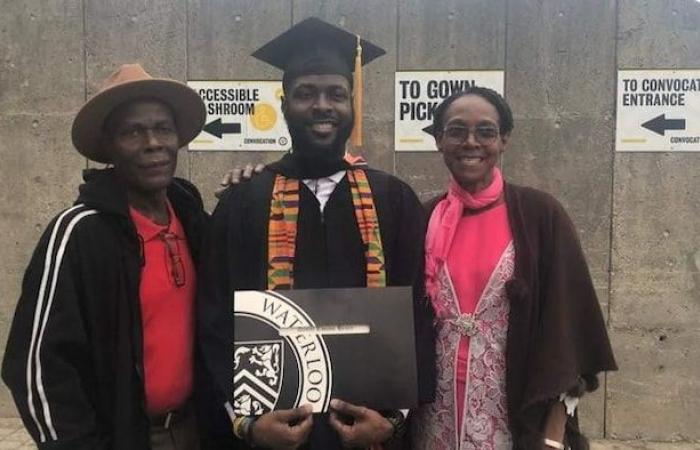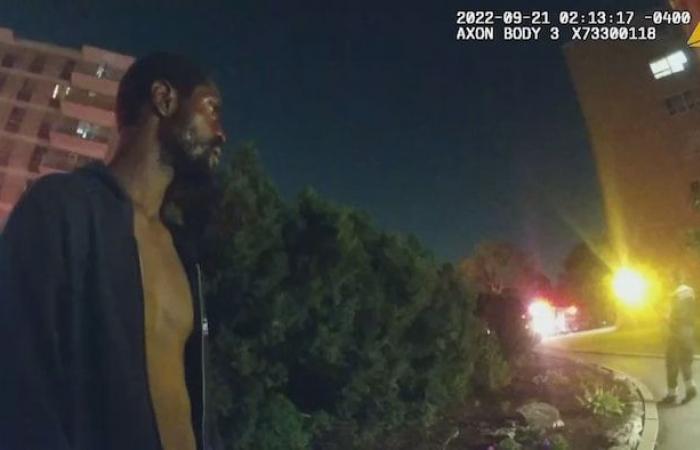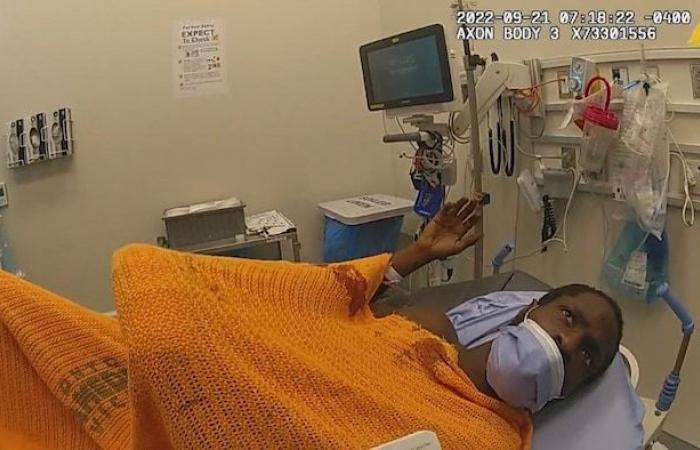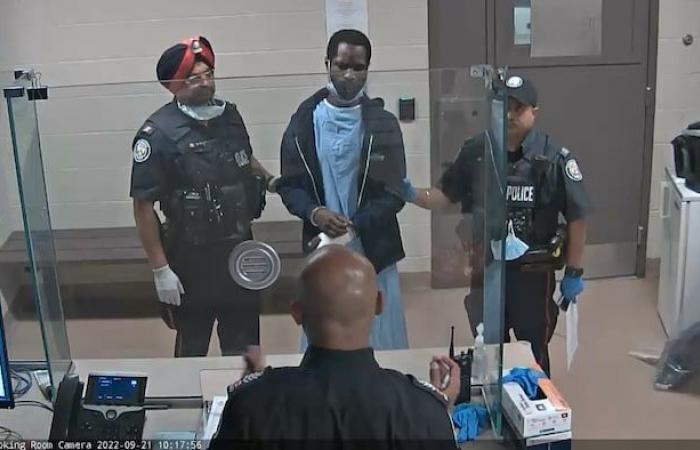The judge at Alpha Henry’s trial explains in her written reasons that the accused’s police interrogation can be admitted into evidence because he had the mental capacity to understand what was being said to him and he makes his statements of his own free will. Alpha Henry is charged with the unpremeditated murder of his parents and the attempted murder of his brother in Toronto in 2022.
Colin and Veronica Henry were stabbed to death and their bodies doused with gasoline. They were discovered in the bathtub of their apartment on the night of September 21, 2022 in the neighborhood Rexdale.
Alpha Henry, 30, was arrested at the scene when police arrived. His younger brother, Daniel, who was initially suspected, was released after his arrest.
15-page judgment
In her decision, Justice Joan Barrett of the Ontario Superior Court says there is no evidence that police threatened or forced Alpha Henry to make the statements he made or that they promised anything in exchange for his words.
There is also no concern that the police acted through deception to deceive him.
she mentions.
Open in full screen mode
A crowdfunding campaign was created after the murders of Colin Henry, 68, and Veronica Henry, 67, to help their second son Daniel (center) cope with their disappearance.
Photo : GoFundMe
She explains that she reviewed all the videos in which the accused had interactions with the police the night of the double murder.
She points out that Alpha Henry was treated with compassion et respect
and that the police did not violate their Charter rights.
The police officers’ interactions with the defendant are a model of courtesy and professionalism
she writes, adding that the accused never said that he did not want to speak to the police.
The police even discouraged the accused from making statements before speaking to a lawyer,
she continues.
Open in full screen mode
Alpha Henry waits to be taken by an ambulance to the hospital on the night of September 21, 2022 outside the apartment building of his murdered parents
Photo: COURTESY OF THE SUPERIOR COURT OF ONTARIO
She recalls that the police had protected Alpha Henry’s identity in front of the media the night of the double murder by covering his head when they put him in the ambulance, that they had offered him clothes and meals in detention upon his return from hospital, where he had been treated for knife lacerations to his hand.
The judge emphasizes that there is no evidence that the accused was deprived of sleep or medical assistance. Alpha Henry never complained to the station that he was sleep deprived
she declares.
She concluded that the Crown had proven beyond a reasonable doubt that the accused had not spoken under duress, that he was not at all overwhelmed by the circumstances of his arrest and that his statements to the police were been made on a voluntary basis.
Second criterion to fulfill
The magistrate then had to demonstrate, as the Crown argued during the pleadings, that Alpha Henry was in possession of his means when he made his statements to Detective McGinn.
She maintains that the accused’s comments were consistent during the interrogation. He was alert, clear, uniform and appeared quite eager to give his version of the facts to the police.
she said.
She specifies that the defendant had received treatment at the hospital and that he did not seem inconvenienced, uncomfortable or in pain.
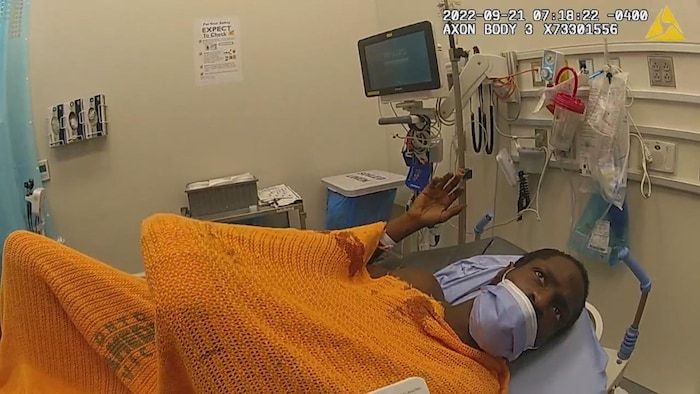
Open in full screen mode
Daniel Henry at Etobicoke General Hospital in the early hours of September 21, 2022, under police escort.
Photo: COURTESY OF THE SUPERIOR COURT OF ONTARIO
The judge points out that Alpha Henry was able to speak to a lawyer twice before the interrogation and that he made the informed choice to refuse to have an agent take a DNA sample or photos of him.
She finally mentions that the accused knew that anything he said could be used against him, since Detective McGinn had explained to him that he was not obliged to answer his questions.
The defendant’s own comments that he faced two life sentences for the crime with which he is accused demonstrate that he fully understood the danger he faced
she declares.
Position of both parties
The Crown asserted that the accused never changed his version of the facts to the effect that he said he was a victim of his brother and that he was therefore consistent in his comments.
She maintained that the accused had not suffered any threats, intimidation or pressure from the police officers with whom he had exchanges.
The defense argued the opposite, because his client could not agree to answer the questions willingly due to his mental health, his injuries and a lack of sleep.
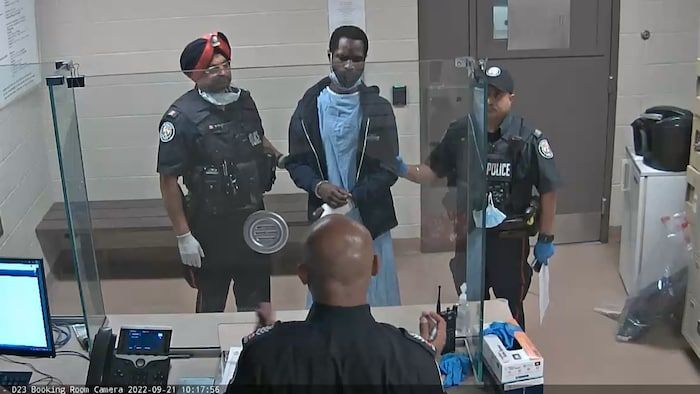
Open in full screen mode
Alpha Henry arrives at Police Station 23 after being discharged from hospital; he is escorted by agents Gandhi and Saini.
Photo: COURTESY OF THE SUPERIOR COURT OF ONTARIO
In this trial, the defense always mentioned that their client suffered from a mental health disorder which they however always refused to identify.
The police interrogation could therefore not be admitted as evidence, according to her, since her client had not made his statements of his own free will.
However, the judge writes on this subject thatIt appears that the accused showed some mental health problems upon his arrest in the victims’ apartment, but this did not deprive him of his mental capacity [pour faire une déclaration sur une base volontaire]
.
The only downside, however: the magistrate believes that the police could have inquired more into the state of mental health of the accused because of his bizarre behavior at the police station.
The police would therefore have been able to better inform the detective about the conditions in which the accused was going to be questioned 15 hours after his arrest.
This omission, however, had no impact on the accused’s understanding during his police interrogation.
concludes the judge.

